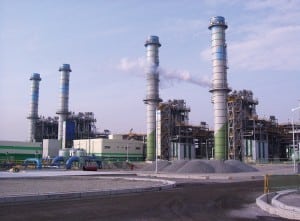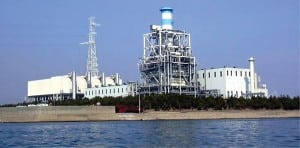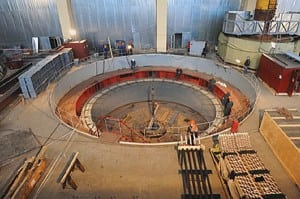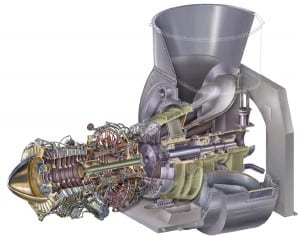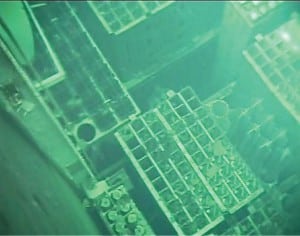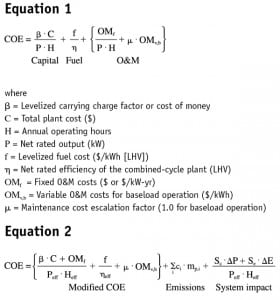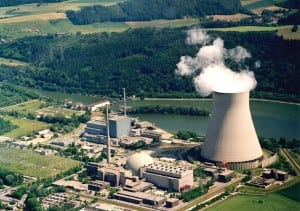POWER
-
Instrumentation & Controls
K-Power Upgrades Combined- Cycle Automatic Generation Controls
Tightly managed grids require combined-cycle plants equipped with power block controls that can quickly respond to automatic generation control signals with minimal error. K-Power’s successful controls upgrade demonstrates that that goal—and more—is achievable.
-
Business
The Urge to Merge
Utility mergers and acquisitions are on the upswing again. When faced with flat load growth, pervasive regulatory uncertainty, and the rising cost of doing business, larger companies are better able to afford expensive new plants while maintaining shareholder dividends.
-
Instrumentation & Controls
Fully Automating HRSG Feedwater Pumps
Modern distributed control system platforms can provide many tools to capture best operating practices and automate them. This case study shows the steps taken to automate a hypothetical simplified feedwater pump system for a combined-cycle power plant. It describes a combination of controls automation strategies and human-machine interface techniques designed to increase the overall level of automation while improving ease of use.
-
News
Turning Gold into Lead
Despite California’s deep economic wounds, Governor Jerry Brown (D) last month signed a bill (SB 2X) that increased the state’s already ambitious renewables portfolio standard (RPS) goal from 20% to 33% by 2020. Together with the state’s Global Warming Solutions Act of 2006, which requires caps on greenhouse gas emissions starting next year, the new law will push up the price of electricity and further delay the Golden State’s economic recovery by permanently driving away irreplaceable businesses and manufacturing jobs.
-
Gas
The T-Point Plant: The Ultimate Validation Test
Fourteen years ago, the MHI T-Point demonstration combined-cycle plant in Takasago, Japan, changed the way modern gas turbines are validated under real operating conditions. In February, T-Point marked yet another milestone by starting to validate the world’s largest and highest efficiency gas turbine, which operates at the unprecedented turbine inlet temperature of 1,600C.
-
Hydro
Seven Charged in Siberian Hydropower Plant Accident
The Russian Investigative Committee has completed a probe into the August 2009 accident at the Sayano-Shushenskaya Hydro Power Plant in Siberia that killed 75 people. The committee has charged seven people—including the plant’s former head, Nikolai Nevolko, his deputies, and the plant’s former chief engineer, Andrei Mitrofanov—for violating safety rules. If found guilty, the officials could face five years in jail.
-
Gas
Selecting Your Next Combustion Turbine
With natural gas serving as the fuel de jour, many utilities and merchant generators will be considering the purchase of new combustion turbines in the near future. If you are in the market for a gas turbine, here are some key design features you should discuss with turbine vendors prior to your next purchase.
-
Nuclear
Recovery Efforts Continue at Fukushima Daiichi
In April, Japan’s Nuclear and Industrial Safety Agency provisionally raised the accident rating for three reactors at the crippled six-unit Daiichi nuclear plant in Fukushima Prefecture to Level 7—making it a “major accident” and putting it on par with the 1986 Chernobyl accident in the Ukraine. Recovery efforts continue at the nuclear plant with workers […]
-
Business
A More Accurate Way to Calculate the Cost of Electricity
Life-cycle cost of ownership is a common metric used to compare power plant system alternatives. However, the familiar formula for calculating the cost of generating electricity omits factors that are becoming increasingly important to business decisions. A new formula addresses those blind spots by estimating the value of the part-load performance of cycling combined-cycle plants.
-
Nuclear
Germany Considers Accelerated Nuclear Exit on Fukushima Worries
In the wake of the devastating nuclear crisis afflicting the Fukushima Daiichi nuclear plant in Japan, Germany has embarked on an abrupt shift away from nuclear power, shutting down eight reactors for safety checks and ditching concerted efforts to keep nuclear power plants open in the long term. In mid-April, Chancellor Angela Merkel told reporters that leaders of Germany’s 16 states all want to “exit nuclear energy as soon as possible and make the switch to supplying via renewable energy.” The policy reversal has incited ardent opposition from the energy sector and industry.

